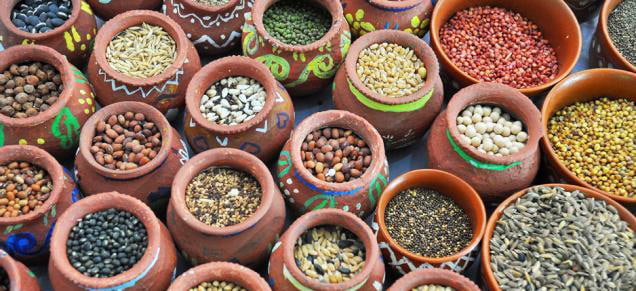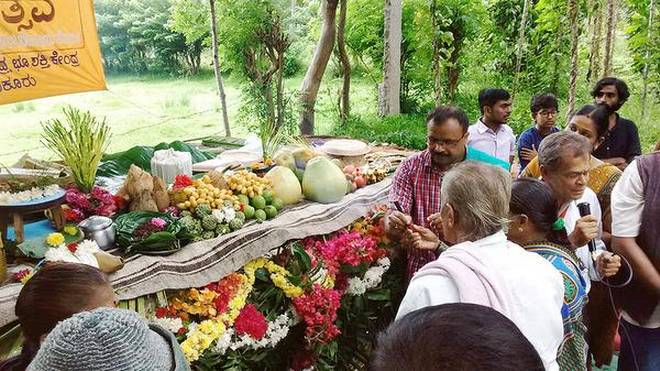As the world hurtles towards greater ecological devastation, inequalities, and social conflicts, the biggest question facing us is: are there alternative ways of meeting human needs and aspirations, without trashing the earth and without leaving half of humanity behind?Across India (as in the rest of the world), this question is being answered by a multitude of grassroots and policy initiatives: from meeting basic needs in ecologically sensitive ways to decentralised governance and producer-consumer movements, from rethinking urban and rural spaces towards sustainability to struggles for social and economic equity.
Unfortunately, documentation and public awareness of such initiatives in India is poor. There are very few attempts to consolidate and present in a cohesive manner, the range of these alternatives. We offer Vikalp Sangam website (http://vikalpsangam.org/) as one response to these gaps. It hopes to feature alternatives in the full range of human endeavour as they take place in India, and through this to help build bridges amongst them, learn from each other, and together present a challenge to the mainstream system. This is part of a larger process in which the co-host organizations are involved, at networking alternatives in India and internationally.
Alternative initiatives featured here can be practical activities, policies, processes, technologies, and concepts/frameworks. They can be practiced or proposed/propagated by communities, government, civil society organizations, individuals. Their main features are:
- Ecological sustainability, including the conservation of nature (ecosystems, species, functions, cycles) and its resilience.
- Social well-being and justice, including lives that are fulfilling and satisfactory physically, socially, culturally, and spiritually, and where there is equity in socio-economic and political entitlements, benefits, rights and responsibilities.
- Direct democracy, where decision-making starts at the smallest unit of human settlement, in which every human has the right, capacity and opportunity to take part, and builds up from this unit to larger levels of governance that are downwardly accountable.
- Economic democracy, in which local communities (including producers and consumers, often combined in one) have control over the means of production, distribution, exchange, markets; where localization is a key principle, and larger trade and exchange is built on it.
Of course no single initiative may have all these features, but even if they have one they are worth featuring here, so long as they are not seriously threatening the others. For instance, we may not put up a brilliant new green technology that is so expensive it will be usable only for the rich, unless it also has potential to reach the poor. Or a greening initiative by a communally fundamentalist organization. Or a radical political experiment that is bent on clearfelling a forest to make its point. There will always be greys in the spectrum of alternatives, but we will learn as we proceed how to distinguish genuine attempts from superficial or counterproductive ones.
The Vikalp Sangam process involves diverse activities, including:
documentation of alternative initiatives around India in the form of stories, case studies, videos, and interviews;
outreach of this material on various forums, including a dedicated website
ongoing dissemination of material and discussion on various related issues on a dedicated list
physical confluences of organisations and individuals working on alternatives, held in various regions of India, and/or on specific themes
collective visioning of frameworks for moving to a just, equitable, and sustainable society
Website: http://www.vikalpsangam.org/
Vikalp Sangam Handout Note (Eng and Hindi): http://www.vikalpsangam.org/static/media/uploads/Resources/vikalpsangamshandoutnoteupdatedsept2017.pdf ; www.vikalpsangam.org/static/media/uploads/Resources/vikalpsangamshandoutnotefinalhindisept2017.pdf
Evolving Alternatives Framework Note: www.vikalpsangam.org/about/the-search-for-alternatives-key-aspects-and-principles/
Vikalp Sangam Reports: www.vikalpsangam.org/article/vikalp-sangam-reports#.WsR8OUxuI2w
Case studies on Alternatives: http://vikalpsangam.org/
Films on alternative initiatives: http://vikalpsangam.org/
Talks from Vikalp Sangams: www.vikalpsangam.org/article/talks-from-vikalp-sangams/#.WsR8NkxuI2x ; https://www.youtube.com/results?search_query=vikalp+sangam
Alternative Transformation Format: http://vikalpsangam.org/static/media/uploads/Resources/alternatives_transformation_format_revised_20.2.2017.pdf
Poster Booklet and Exhibition in English and Hindi: http://www.vikalpsangam.org/article/vikalp-sangam-outputs/#.WoRNR0xFzSF
To know more please visit: http://vikalpsangam.org/




